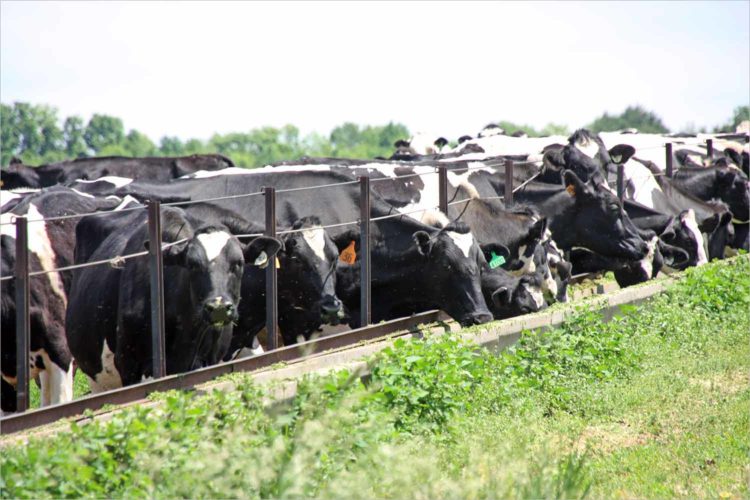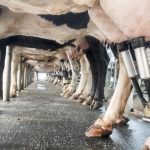
The long-running music and food festival will come to Alpine Valley Music Theatre in East Troy on Sept. 21. (Unless Trey Anastasio is still there jamming from Phish’s July 14 gig.) Farm Aid board members Dave Matthews, John Mellencamp, Willie Nelson and Neil Young will appear. The lineup also includes Bonnie Raitt, Margo Price, Nathaniel Rateliff and others.
This will be Farm Aid’s first time in the state since 2010, when the event was held at Miller Park. Since 1985, Farm Aid has sought to benefit the farms of America’s heartland through the power of heartland rock. So it’s symbolic that organizers chose this year to visit again, because dairy farmers in Wisconsin are straight up not having a good time right now. In a press release, Willie Nelson explained the rationale: “With devastating weather, low prices and harmful farm and trade policies, America’
Nelson doesn’t say it outright, but it’s not hard to infer President Donald Trump’s attention-seeking trade wars. Since taking office, Trump has introduced tariffs on foriegn steel and aluminum, which has gone over in those countries like a wet fart in a crowded elevator. Mexico, Canada, China and parts of Europe have all introduced their own tariffs on American dairy products.
Rather than other countries kissing the ring, as perhaps was Trump’s intention, it’s hurt dairy farmers, especially in Wisconsin. Mexico alone has a 25% tariff on American cheese, which makes up a huge part on Wisconsin’s exports. Coupled with prices that have been steadily falling over the last five years, the outlook is pretty fucking bleak for the state’s farmers.
This week, a PBS NewsHour report noted that U.S. demand for milk has steadily dropped over the past few years; some farmers can’t even make back their production costs. Put simply, American cows are making more milk than Americans can drink.
“2014 saw record prices,” Jim Briggs, a farmer in Clark County, told PBS. “And then ’15, ’16, ’17, ’18 has all been below cost of production prices for the most part.”
The dairy industry thought it could solve the problem by capitalizing on the high demand for milk in China and southeast Asia and increasing production to match it. But it overestimated and saturated the market. In 2018, more than 2,700 dairy farms closed nationwide. And almost a quarter of them — nearly 700 — were in Wisconsin. And that doesn’t just spell disaster for the farmers. It’s also likely to affect the small town economies driven by the farmers. Without the money being filtered into these towns, they suffer.
“These small farms, we’re going to town, we’re buying supplies, we’re buying food, we’re buying fuel, we might go out to eat,” said Briggs. “That’s all money going back into the local economy.”
As the economies dry up, people leave these small towns for larger ones with better prospects. “Once that population drops,” former Loyal mayor Dave Williams told PBS, “everything else drops with it.”
At the current rate, his doomsday scenario seems likely. If the Chinese and Mexican tariffs remain in place, Wisconsin farmers could lose more than $16 billion in revenue over the next few years, according to The New York Times. Compare that to $57 million, the amount of money Farm Aid has raised in its first 34 years.
As exciting as it is that the festival chose the state, there’s only so much John Mellencamp can do. (Unless you need a guy to spell “rock” for you, repeatedly.) What farmers need is a president who’s more willing to invest in their fields than in his own ego. But until that day comes, Johnny Cougar will have to serve as a consolation prize.

























